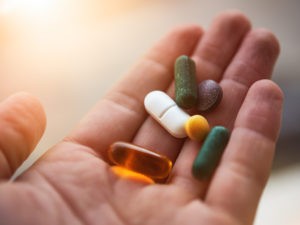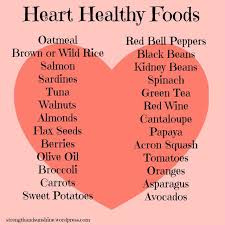Cardiotoxicity in cancer can be a serious short, long- term and late stage side effect. In my research and experience, I think that the study linked below gives a satisfactory basic explanation of the issues but, in general, the article understates the problem.
I have written about cardiotoxicity in cancer many times over the years. Mostly because I was diagnosed with chemotherapy-induced cardiomyopathy in late 2010.
I am writing about the study linked below because it examines three key issues-
- Lifestyle habits and chemo regimens triggering cardiotoxicity
- Common comorbidities and
- Cardioprotective measures
Regarding “cardio protective measures” it seems as if they don’t work too well if 12.5% of the cancer patients developed heart damage despite their administration.
Regarding common comorbidities, it makes sense that, say, diabetes, increases your risk of heart damage. In my mind, all I can think is to wonder why the oncologist prescribed the known cardiotoxic chemo to a patient suffering from diabetes. But I’m just a laymen…
Lastly, regarding lifestyle habits and chemo regimens that can trigger chemotherapy-induced cardiomyopathy, it makes sense to me that smoking, hypertension and atherosclerosis increases the risk of heart damage.
What therapies, both conventional and non-conventional, can reduce or prevent cardiotoxicity in cancer?
- Conventional Therapies:
- Cardioprotective Medications: Drugs like dexrazoxane and angiotensin-converting enzyme (ACE) inhibitors may help protect the heart during certain cancer treatments.
- Monitoring and Screening: Regular cardiac monitoring and screening through echocardiograms, electrocardiograms (ECGs), and biomarker tests can help detect early signs of cardiotoxicity.
- Dose Modification: Adjusting the dosage or schedule of chemotherapy or radiation therapy based on the patient’s cardiac function can help minimize cardiotoxic effects.
- Cardiac Rehabilitation: For patients who develop cardiotoxicity, cardiac rehabilitation programs can improve heart function and overall cardiovascular health.
- Non-conventional Therapies:
- Nutritional Support: A diet rich in antioxidants, omega-3 fatty acids, and other nutrients may help mitigate oxidative stress and inflammation in the heart. Some studies suggest that supplements like coenzyme Q10 (CoQ10) and L-carnitine could also have cardioprotective effects.
- Exercise: Regular physical activity has been shown to improve cardiovascular health and may help protect against cardiotoxicity. Exercise programs tailored to cancer patients can be beneficial.
- Mind-Body Therapies: Techniques such as meditation, yoga, and acupuncture may help reduce stress and anxiety, which can have indirect benefits for heart health.
- Herbal Remedies: Some herbs, like hawthorn, may have cardioprotective properties and could potentially complement conventional treatments. However, their efficacy and safety require further research.
- Supervised Integrative Medicine: Integrative oncology programs, which combine conventional cancer treatments with complementary therapies like acupuncture, massage therapy, and nutritional counseling, may offer holistic support for cancer patients, including protection against cardiotoxicity.
I think the conclusion of the study below is that:
“The incidence of cardiotoxicity among cancer patients treated with chemotherapy is modest, difficult to predict…”
I vehemently disagree with this conclusion mainly because the finding of the study cardiotoxicity occurring in 12.5 cancer patients, is only a starting point. Numerous other studies on the topic document chemotherapy-induced cardiotoxicity appearing for years, even decades after treatment. I am an example of this.

man hand holding his nutritional supplemets, healthy lifestyle background.
Are you a newly diagnosed cancer patient? Has your oncologist prescribed a cardiotoxic chemo regimen for you? If you’d like to learn more about evidence-based non-conventional therapies shown to reduce the risk of heart damage during chemo, email me at David.PeopleBeatingCancer@gmail.com
Thank you,
David Emerson
- Cancer Survivor
- Cancer Coach
- Director PeopleBeatingCancer
“Background: Chemotherapy-related cardiotoxicity can exhibit several patterns of functional, structural, and vascular complications. This study aims to identify the patterns and the factors associated with cardiotoxicity in cancer patients…
Method: A retrospective cross-sectional analysis of 96 adult cancer patients undergoing anticancer therapy was investigated at King Khalid Hospital in Najran, Saudi Arabia, from May 2022 to April 2023. The data on patient and cancer characteristics, treatment, and outcomes were collected and analyzed. Factors associated with cardiotoxicity were investigated through univariate analyses using odds ratio (OR) and 95% confidence interval (CI)…
Results: Among the 96 cancer patients in the study, cardiotoxicity occurred in 12 individuals (12.5%). The mean age was 57.0 ± 13.3 years (range: 32-81 years), with 32 (33.3%) being above 65 years. The most common comorbidities were:
- diabetes (n=48; 50%),
- followed by hypertension (n=32; 33.3%),
- and dyslipidemia (n=20; 20.8%
The most common cancers were
- gastrointestinal cancer (n=32; 33.3%),
- followed by breast cancer (n=22; 22.9%) and
- lymphoma (n=14; 14.6%)…
The majority of patients (90.6%) had normal ejection fraction before chemotherapy initiation.
In univariate analysis,
- current smoking (OR: 7.00; 95%CI: 1.94-25.25, p= 0.003),
- history of percutaneous cardiac intervention (OR: 40.24; 95%CI: 1.80-896.26, p= 0.019),
- diabetes (OR: 6.05; 95%CI: 1.24-29.32, p= 0.025),
- renal failure (OR: 8.20; 95%CI: 0.91-74.88, p= 0.046),
- dyslipidemia (OR: 5.00; 95 CI: 1.38-18.32, p=0.012),
- anthracycline use (OR: 18.33; 95%CI: 4.36-126.55, p <0.001),
- trastuzumab use (OR: 25.00; 95%CI: 6.25-129.86, p < 0.001),
- and increased chemotherapy cycles number (> 10 cycles) (OR: 73.00; 95%CI: 8.56- 622.36, p < 0.001
were associated with cardiotoxicity. Additionally, beta-blocker use was associated with lower rates of cardiotoxicity (OR: 0.17; 95%CI: 0.036-0.84, p= 0.029).
Conclusions: The incidence of cardiotoxicity among cancer patients treated with chemotherapy is modest, difficult to predict, and independent of baseline cardiac systolic functions. Factors associated with cardiotoxicity include smoking, history of percutaneous cardiac intervention, diabetes, renal failure, dyslipidemia, anthracycline or trastuzumab use, and increased chemotherapy cycle numbers. A combination of various anticancer drugs and chemotherapy may dramatically raise the risk of cardiotoxicity in cancer patients.
As a result, patients receiving high-risk cardiotoxic drugs should be monitored with caution to avoid drug-related cardiotoxicity. Furthermore, proactive treatment techniques aiming at reducing the possible cardiotoxic effects of anticancer therapy are critical…”




